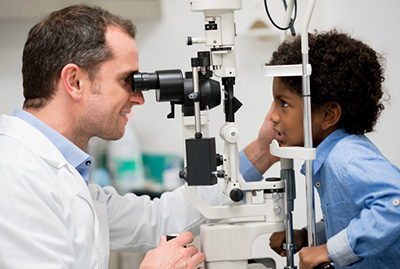Current State Partnerships: Improving Eye Health

Seven state partners were selected for the 2019–2021 funding period to improve eye health: Alabama Lions Sight Preservation Association, Prevent Blindness North Carolina, Ohio Department of Aging, The Ohio State University, Prevent Blindness Texas, University of Virginia, and Prevent Blindness Wisconsin.
Efforts from state collaborations will include:
Alabama Lions Sight Preservation Association
- Incorporate vision screening within other preventive care practices.
- Train Alabama Department of Public Health staff to measure visual acuity and perform an eye health assessment during all adult appointments.
- Develop educational materials to increase knowledge about diabetic retinopathy and the importance of receiving an annual dilated eye exam.
- Conduct diabetic retinopathy screenings in underserved counties through mobile eye clinics.
Prevent Blindness North Carolina
- Assess the baseline of vision and eye care among people with diabetes.
- Implement a service program for people with diabetes that incorporates retinal screening, referral to eye care providers (as appropriate), and offer free vouchers for care on a need basis.
- Develop educational materials to improve patient knowledge about adult eye disease and the importance of screening and follow-up exams.
- Train staff in public health departments and community health clinics to measure visual acuity and provide eye health education.
Learn more at Prevent Blindness North Carolina.
Ohio Department of Aging
- Ensure inclusion of the vision and eye health module in the Behavioral Risk Factor Surveillance System.
- Engage and educate stakeholders about the importance of early detection and treatment of eye problems in arenas such as the Ohio legislative breakfast, 2020 Aging Eye Summit, and Ohio’s Aging Eye Public Private Partnership.
- Update a vision simulation app to enable users to see what the world would look like if they had an eye disease like diabetic retinopathy.
- Develop an aging eye annual report and fact sheet to guide public policy recommendations to support healthy aging for older adults in the community.
The Ohio State University
- Assess national- and state-level burden of vision impairment and comorbidities.
- Develop and test statistical methods to assess county-level estimates of vision impairment and access to eye care providers within counties.
- Convene a stakeholder meeting to develop strategic recommendations for the Ohio Department of Health to reduce the burden of vision impairment in the state.
Learn more at the Ohio Department of Aging and the Ohio State College of Optometry.
Prevent Blindness Texas
- Enhance and build the capacity of Houston’s public health system to enable access to care for the medically underserved adults affected by vision loss and blindness.
- Create an education campaign to raise awareness about preventable vision loss.
- Train, certify, and educate community volunteers to conduct adult vision screenings, deliver information on specific eye health topics, and refer clients to the appropriate eye care resources.
- Collaborate with partners to reduce inequities in vision care.
Learn more at Prevent Blindness Texas.
University of Virginia
- Pilot and test a mobile fundus camera at two clinics within the Thomas Jefferson Health District.
- Produce an evidence-based, scalable model for diabetic retinopathy telehealth partnerships to prevent blindness among underserved populations with diabetes across the state of Virginia.
- Develop training materials and programs to support diabetic retinopathy screening based on priorities and needs.
- Integrate an electronic consultation and referral platform (eConsult program) to improve care coordination between primary care providers and clinical specialists.
Learn more at the University of Virginia Department of Ophthalmology.
Prevent Blindness Wisconsin
- Train and certify health department clinic staff to incorporate adult vision screening and follow-up strategies into current preventive care services.
- Provide vision health education and vision care resources to adults on a need basis.
- Expand partnership with the Milwaukee Public Health Department to increase the number of adults receiving eye care services.
- Explore barriers to receiving vision care within the target population.
Learn more at Prevent Blindness Wisconsin.